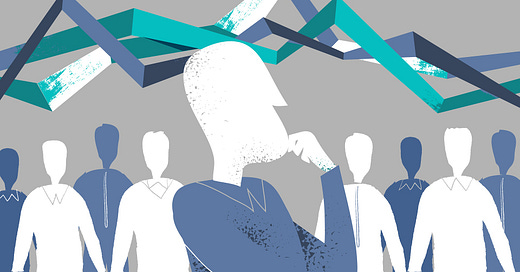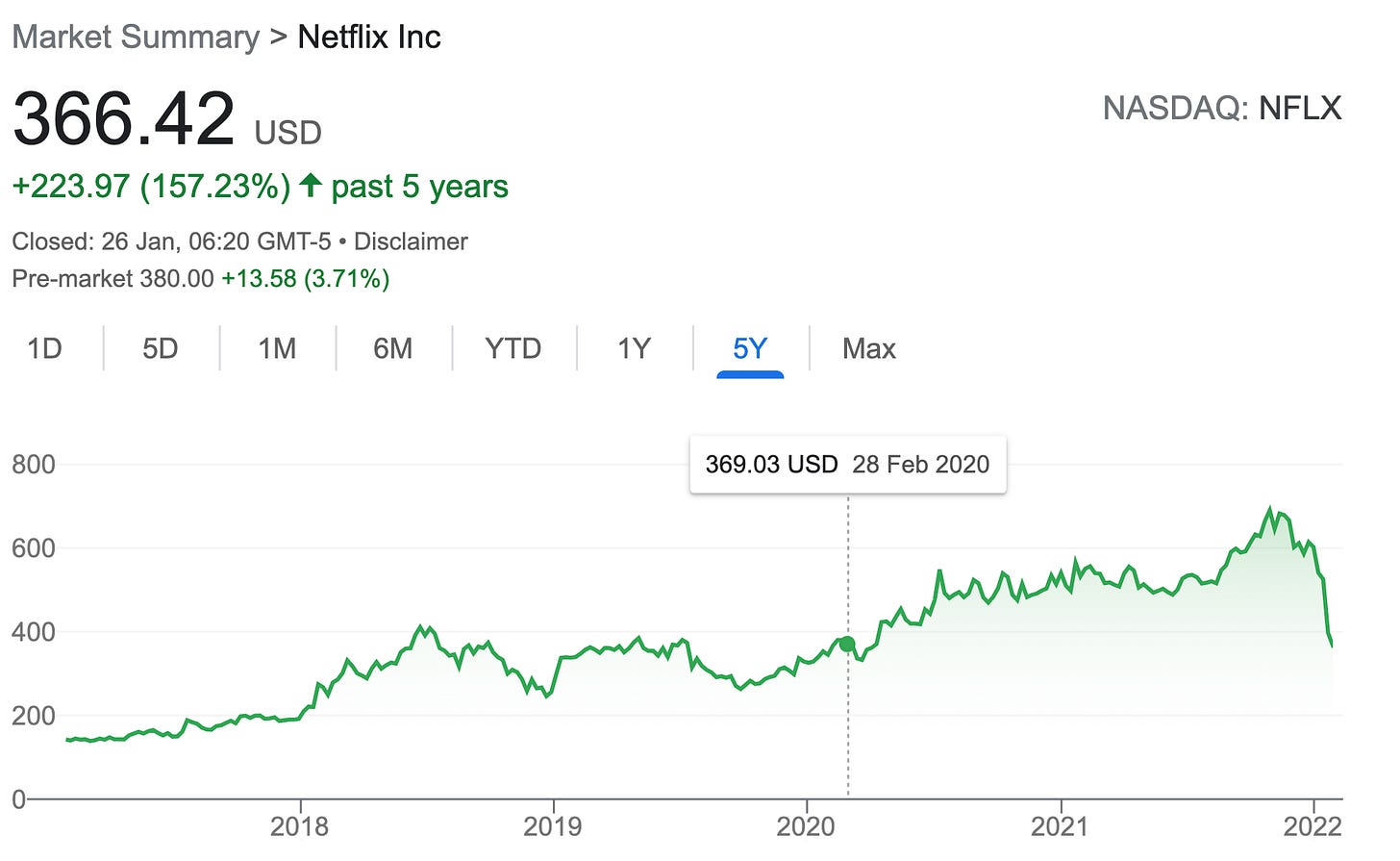IEX 178: Pandemic, Pets, Peloton
How to distinguish between blips and trends in the aftermath of Covid19
The pandemic bump: I'm usually not somebody who makes huge lifestyle changes in January. And yet, here I am, visiting the gym 4 times a week. Eschewing meat, and fried food, and starting my day with oats. You see, my cholesterol count is higher than it should be, and I tend to take health warnings quite seriously, and avoid medication if at all possible. Right at this point, I don't know if this is reversible. Whether the numbers represent a temporary bump or a permanent change. But fundamentally, that's what most things boil down to, right? Recognising the fads from the trends, and knowing when to make the long term commitment to a new normal vs when to buy the dip!
The pandemic has given us wholesale lifestyle changes, but as we get to the point where it might become an endemic disease, the world is perhaps on the brink of redefining a new usual. And perhaps going back to the old normal will be as painful as the sudden adjustment to working from home was.
Dogs: Blip/ Trend? Here's a stat for you 3.2 million homes in the UK adopted a pet during the pandemic lockdowns. Now, some 160,000 dogs have been given up for adoption, and the number may swell over the next few days. As a dog lover, the numbers make me sad. This is just a monumental miscalculation about whether a lifestyle change is permanent or temporary. We too added Ziggy to our household, but my family would sooner give me up, than him! (Because apparently, he's blonde and better looking)
Peloton: Blip/Trend? I'm going to put Peloton's rise and fall in the blip category because I'm not seeing the long term driver to exercising at home, and clearly the company is going through a short term crisis. I'm sure it will always have its followers, but as Galloway and Swisher mention, perhaps as a product, rather than as a company. If your stock is susceptible to plot twists in fictional shows, then you really have a problem. Albeit I'd be fuming if movies and TV shows kept showing how people were dying while using my product. I'm going to classify the Peloton success as a pandemic blip, even though the underlying growth in connected fitness could be a trend.
Netflix: Blip/ Trend? Consider Netflix - who are also experiencing a bit of a meltdown. Despite the record success of Squid Game, the subscriber numbers aren't growing as much as before - a mere 2.5m (4m last year's Q1). And this is a red flag for growth hungry investors. The Netflix stock has tanked by 24% wiped $55bn from the company's value. Yet, look closely, and you'll notice that after all of this correction, the Netflix share price is around $370, just higher than it was on March 1 2020, before the first lockdowns started kicking in across the world. In a nutshell, Netflix has lost its pandemic bump. Is there a deeper challenge to Netflix's business? There are certainly 'head winds' in the shape of increased competition from the likes of Disney, who have an enviable back catalogue to fall back on - including the Pixar, Marvel, and Star Wars stable of films. Netflix has in fact started reporting on the audience.
In fact the media business is a perfect example of an excellent hypothesis I read a long time ago by Professor Mohanbir Sawhney who argues that intelligence lives at the ends of a network. Either at the centre or the edges. Intelligence and value in a media business live either at the core, where content is created, or at the edge, where customers are owned. You can see how the value has gone from the middlee bit - i.e. channels, the moment OTT and time shifting came along to give customers better choices. Even channels like Dave are trying to create original content now. Sky is the master of this game - owning premium sports content, and the subscriber base through their distribution platform. Netflix has also had the privilege of owning both ends - but now Disney has separated itself at both ends.
There are many more such blip vs trend questions all around us. Supply chain constriction: Trend? This one, unfortunately is a bit of a long blip - check out the 'ocean timeliness indicator' and the supply chain pressures index. Also definitely a trend - plant based meat substitutes . The world can't afford cattle based meat.
In fact, a lot of organisations are dealing with 3 layers of changes. The short term impact of Covid (and brexit), the long term, secular change of the shift to digital, automation, and AI, and the organisation's own transformation - almost every organisation has some specific business transformation in play. The trick is to not get distracted by the blips. That's exactly what Cathy Wood (Ark Invest) calls out when she talks about "innovation on sale" - the near term sell off in the tech markets.
Ironically, whether it’s a blip or a trend is ultimately determined by our own actions. I'm heading to the gym now to ensure my cholesterol spike stays a blip, and doesn't turn into a trend.
Reading This Week:
Mobility: How's this for a super-power - enabling autonomous cars to see around corners! (IEEE Spectrum)
Web Economics: Simple formula, good for everybody. YouTube practices the forgotten art of the win-win. (NYT)
AI: Is the multi-tasking algorithm from Meta a path to AGI? (MIT Technology Review)
Blockchain: Will the decentralized web3 be about a different set of gate keepers? (Economist)
Digital Democracy: Always good to get an update from Taiwan’s digital minister, Audrey Tang talking about crowdsourced policy-making, civic technologies, and the #MilkTeaAlliance.
Innovation Classic: The problem isn’t ideas, it’s about whether they are recognised or whether risk avoidance kicks in and kills new ideas. (HBR)
Have an excellent week!







